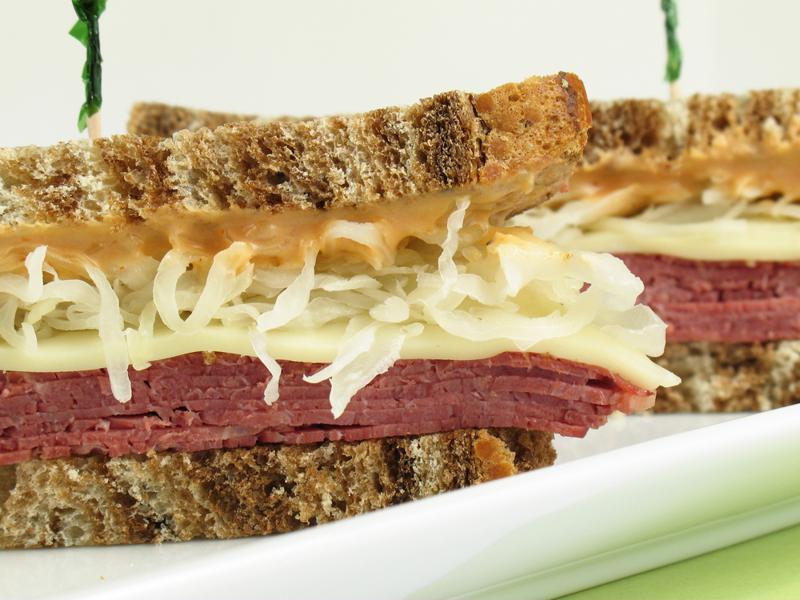Delicatessens take part in a long tradition of bold, delicious flavors.The sandwiches come in all shapes and sizes, with endless varieties of bread, vegetables, meat and condiments. And while anyone can put together two slices of rye and some cold cuts, culinary academy graduates learn why certain taste combinations work better than others.
If you are interested in crafting and serving your own signature sandwiches, you can master old favorites or try developing a fresh approach. Here are some of the ways that the best delis out there produce consistently fantastic meals.
Deli traditions
Many delis achieve greatness without reinventing the wheel. These purveyors of fine meats and breads specialize in delivering high-quality versions of the same sandwiches that have been sold for generations. What they lack in originality, they make up for with fresh ingredients and a sense of authenticity.
“Many delis achieve greatness without reinventing the wheel. “
Food & Wine pointed out that though New York City’s 2nd Avenue Deli moved to 33rd Street in 2007, the commitment to preparing old-school Kosher meals with house-cured corned beef and tongue hasn’t changed. Customers can pick up a simple pastrami on rye or opt for something more elaborate. Triple-decker sandwiches come piled with ingredients like roast turkey, tongue, coleslaw, lettuce, tomato and Russian dressing. For the truly daring, there’s the Instant Heart Attack, made by sandwiching corned beef, pastrami, turkey or salami between two potato pancakes.
Ann Arbor, Michigan-based Zingerman’s Delicatessen has been serving deli staples with exceptional ingredients since 1982. The classic Reuben features imported Swiss cheese, locally made sauerkraut and Russian dressing on grilled rye bread. While much of the menu is inspired by Jewish-American traditions, there are also several pork sandwiches available, such as the Cuban Conundrum. The grilled roll is filled with Cuban-style pulled pork, peppered ham, Swiss cheese, dill pickles, mayonnaise and hot mustard.
With a history stretching back to 1888, Katz’s Delicatessen in New York is famed for its homemade pastrami. As Serious Eats explained, the exceptional flavor comes from a long process that involves a secret spice rub and two or three days of smoking, followed by boiling and steaming. Even slicing the pastrami calls for highly trained and experienced workers who thinly cut the meat at high speeds. Then it’s ready to be served on a variety of sandwiches, like the pastrami special with Swiss cheese, oven-roasted onions and grilled rye bread. In a neighborhood fixture like Katz’s, putting together exceptional food is about drawing on the recipes and techniques developed over generations.

Changing the sandwich game
While some of the most beloved delis have long histories and deep roots in their communities, there are also a number of upstarts that show off plenty of sandwich-making prowess. Drawing on the cultural background of those stalwarts, they bring a fresh perspective, trying out unconventional ingredients and cooking methods.
For instance, Wise Sons Jewish Delicatessen, located in San Francisco, opened in 2012, after proprietors Evan Bloom and Leo Beckerman started their business with a series of pop-up dinners. This combination of current foodie culture and old-school comfort eating is reflected throughout the deli’s operations. The owners show their commitment to both Kosher classics and artisanal experimentation with items like the Big Macher. This cheeky take on the famous fast food burger comes on sesame seed challah bun and features a blend of ground beef and pastrami, cheddar cheese, onions, relish, lettuce and Russian dressing.
Most recently, the deli has ventured into making its own bagels, using them to build a range of breakfast sandwiches. Bloom told Eater that he knew such choices invited criticism from traditionalists.
“There’s a lot of margin for error, and we’re gonna get a lot of flak,” he said. “Everybody’s got their opinion, and if we thought pastrami and Jewish deli was divisive, bagels will be ten times that.”
Publican Quality Meats in Chicago has shown a similar interest in trying out many different approaches to food and producing adventurous, delicious sandwiches in the process. The combination of cafe, butcher, bakery and market offers unique takes on sandwich shop classics. For instance, the Big Dipper comes with braised wagyu brisket, garlic aioli, radish and a jalapeno and snow pea slaw on ciabatta bread. The Mr. Merguez includes both lamb and pork sausage, peperonata, hummus, goat’s milk cheese, watercress and balsamic vinegar on a shallot bun.
Delis produce a wide variety of delicious and comforting sandwiches. New chefs who are studying at culinary arts institutes can learn a great deal about flavor and attention to detail from the sandwich masters who carry on the techniques from the past as well as those who are exploring exciting new ideas.


